Business
NNPC, major marketers deny increase in fuel price
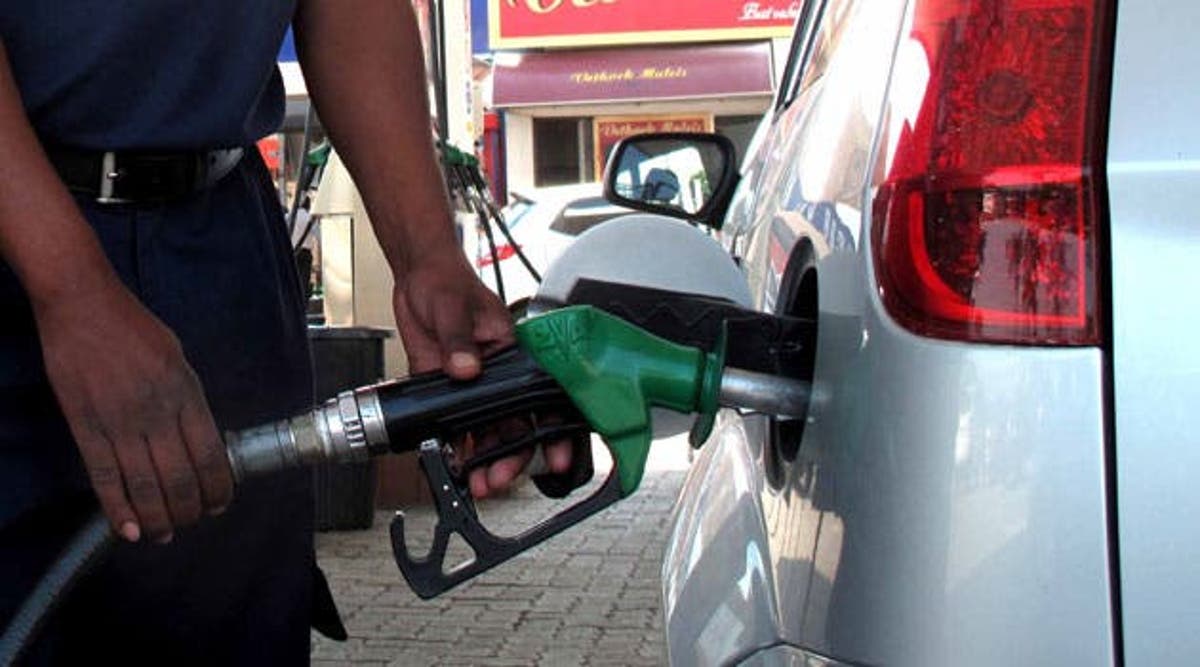
- Independent marketers justify pump price hike
The Nigerian National Petroleum Corporation has dismissed reports of an upward review in ex-depot prices of petrol.
Major Oil Marketers of Nigeria (MOMAN) also said its members had not increased the pump price of petrol.
But the independent marketers said they could only get the product between N160 and N162 per litre at the depot instead of N148 per litre.
Group General Manager, Group Public Affairs Division of the NNPC, Dr Kennie Obateru, said there was no immediate plan to increase the pump price of fuel.
But some marketers in Lagos and Ogun states are said to have adjusted their pump price of petrol from N162 to N170 per litre as shortage of the product is being experienced by private depots in Apapa, Lagos.
Obateru, in an interview, said, “The NNPC has not increased its ex-depot price. I am certain that the NNPC is not likely to increase its ex-depot price in February.”
According to him, NNPC has a stock of petrol that can last for over 40 days. He allayed fears about scarcity of the product.
Obateru urged the Department of Petroleum Resources (DPR) to clamp down on the marketers hoarding petrol.
“We have sufficiency for almost 40 days. If people are hoarding or increasing their prices, it is for the DPR to look into it,” he said.
The Independent Petroleum Marketers Association of Nigeria (IPMAN) urged the Federal Government to return subsidy to petrol as landing cost soared to N180 per litre.
IPMAN’s National Vice President, Alhaji Abubakar Maiganidi, told The Nation the government should either deregulate the product fully or subsidise it.
Maigandi was reacting to the latest fuel scarcity in Lagos.
Asked whether there was an upward review of the pump price, he said, “Most of the private depots are selling petrol for between N160 and N164 per litre instead of N148 per litre.”
The Major Oil Marketers of Nigeria (MOMAN) also denied that there was a hike in the pump price of petrol.
It wondered whether any fuel marketer was getting supply from any source other than the NNPC
MOMAN Chairman, Tunji Oyebanji, said none of his members had hiked fuel price, adding that all marketers currently source products from the NNPC.
He said since the Federal Government claimed it had deregulated the downstream oil sector, marketers were at liberty to sell at any price reflecting their operational cost.
He said if the unilateral fuel price hike had come from some of his members, the government would have wielded the big stick.
Oyebanji said the Federal Government desired to deregulate the downstream oil sector, adding that if that had taken place, the price would have gone up astronomically.
He said the government was in consultation with labour to avoid a sharp rise in petroleum products prices.
Consumers resorted to panic buying of petrol products across some states, resulting in fuel queues along some routes in the Lagos metropolis.
Some filling stations have shut their outlets altogether.
In Ado Ekiti, the Ekiti State capital, the queues that returned to petrol stations at the weekend subsided on Tuesday.
At the First Blessing filling station along Satellite Campus Road, Federal Polytechnic, Ado Ekiti, petrol was sold at N175 per litre, while at NNPC retail outlet along the popular Bank Road in the city, it was sold at N65 per litre.
In the Federal Capital Territory (FCT), the product was still being sold at between N162 to N162.50 per litre, which is still within the N160 and N165 band set by the government when crude traded just above $43 per barrel four months ago.
West Texas Intermediate (WTI) for March traded above $60 yesterday, while the Brent April contract on the Intercontinental Exchange settled at $63. Both crude benchmarks added over 12 per cent in value since the beginning of February.
Maigandi said the existence of different prices was an indication of a shortfall, which the marketers are asking the government to subsidise.
Asked why the marketers are not patronising the NNPC depots where the price is still official, he said, “You cannot get the product from NNPC depots. NNPC depots will ask you to queue up at the depot.”
Business
Dangote Refinery: MRS, other filling stations increase petrol price
Dangote Refinery: MRS, other filling stations increase petrol price
The price of petrol has surged to N930 per litre in Lagos and N960 in northern states, following the recent suspension of naira payments for crude oil by the Dangote refinery.
MRS filling stations implemented the new pricing structure on March 28, 2025, marking a N70 increase from the previous rate of N860 in Lagos and N80 higher than the former N880 in the North.
Other fuel retailers have also adjusted their prices, with NIPCO reportedly selling at N930 per litre in Magboro, Ogun State, on Saturday.
According to MRS Oil & Gas, trucks will load products from its Lagos depot and distribute them across the country at varying costs.
The company’s latest pricing document confirms that Lagos has the lowest fuel rate, while northern states face the highest prices. However, the company did not specify whether it sourced its supply from the Dangote refinery.
Under the revised price framework, petrol now costs N930 per litre in Lagos, N940 in other South-West states, and N960 in the South-South and South-East regions, including Edo, Abia, Akwa Ibom, Bayelsa, Rivers, Cross River, and Enugu.
READ ALSO:
- Ex-Rivers HoS wife cries for help over husband’s safety
- Fubara reacts as Ex-HOS, Nwaeke accuses him of bombing oil pipelines, Rivers Assembly
- Natasha: Emmanuel Uduaghan threatens to sue Senator Nwaebonyi
In the North, Abuja, Kaduna, Benue, Kogi, Niger, Sokoto, Kebbi, and Nasarawa will pay N950 per litre, while Zamfara, Kano, Jos, Bauchi, Taraba, Adamawa, Borno, Katsina, Jigawa, Gombe, and Yobe will pay N960.
The Free Carrier Agreement (FCA) price, which determines how much marketers pay before reselling fuel, also differs by region. Lagos has the lowest FCA price at N905 per litre, whereas states like Borno, Taraba, Adamawa, and Yobe have FCA prices around N888 per litre.
The recent suspension of the naira-for-crude initiative by the Dangote refinery was attributed to discrepancies in crude oil allocation. Sources indicate that the Nigerian National Petroleum Company Limited (NNPCL) allocated large volumes of crude to foreign creditors to settle outstanding loans, making it difficult to sustain local transactions in naira.
As a result, independent fuel importers have taken advantage of the situation, increasing depot prices. Industry analysts warn that the rising petrol costs could drive up transportation fares and the prices of goods and services.
Experts suggest that prices may stabilize once the Dangote refinery secures a reliable crude oil supply from NNPCL and resumes selling in naira. Until then, consumers across the country will have to contend with higher fuel costs.
Dangote Refinery: MRS, other filling stations increase petrol price
(PUNCH)
Auto
Lanre Shittu Motors to endow Automobile Department of Lagos Technical College

Lanre Shittu Motors to endow Automobile Department of Lagos Technical College
Lanre Shittu Motors has announced a novel idea that will boost automobile studies in a Lagos technical college.
Specifically, it has pledged to adopt the Automobiles Department of the Government Technical College, Aso-Soba in the Festac area of Lagos.
This is intended to raise academic and practical programme standards of the school.
The company said this would involve adequate funding, in-school training and intensive industrial training (IT) with welfare package to encourage more young people to pursue academic career in automotive engineering.
Business Support/Admin Manager of LSM, Mr Babatunde Adenuga, disclosed this in Lagos, in an interview with journalists.
Adenuga represented the LSM Managing Director, Mr Taiwo Shittu, at the just concluded Engineering Week of the college sponsored by the auto company, where he unveiled the plan to the staff and students at the event’s grand finale.
Aside from the needed financial support to make the auto department functional and standard, he said LSM would provide the tools, overall wears/workshop uniform, among others, as part of the welfare package for the students.
He said it would be a win-win situation for the school and the company.
Adenuga said, “The school will benefit immensely from the LSM package for the department as we take the financial trouble of running the department away from them.
“Students from the department can come for their internship at LSM workshops, and getting jobs after school won’t be difficult.
“For us, it will be a seamless arrangement in getting suitable personnel familiar with our training and business orientation.”
He also said the LSM had been absorbing students from the school and others for their industrial training (IT), providing them with useful hands-on training and monthly stipend to keep them going.
The LSM MD, Taiwo Shittu, commenting on the support, said, “We’ll be part of the progress of the school. We want to own a department in the technical college, the automobile department of studies that will enable us to fund the place; take care of the welfare of students, providing the tools, overall uniform and other facilities.”
“At LSM, we see training the youths as part of our Corporate Social Responsibility. Every year, we take in youths into our facility and train them; even while in training, we give them stipends.”
The highpoint of the LSM-sponsored Government Technical College event was the presentation of prizes to outstanding students in the various competitions held for the Engineering Week.
Three of the students whose projects stood out such as locally produced water pumping machine and water heater went home with impressive cash awards.
Principal of the college, Mr Folarin Sunkanmi, expressed appreciation to LSM for the interest in the school, starting with giving the students the opportunity for industrial training and offering them monthly stipend.
The principal commended the LSM efforts of sponsoring the engineering week’s activities, whose theme was given as ‘Engineering for Sustainable Development (Innovators of tomorrow)’
He urged other companies to emulate the LSM example in order to boost the employability chances of products of the technical colleges and engineering departments of higher institutions in the country.
Business
Elon Musk sells X to AI startup for $33 billion

Elon Musk sells X to AI startup for $33 billion
Billionaire entrepreneur Elon Musk has announced the merger of his artificial intelligence startup, xAI, with his social media platform, X, in an all-stock transaction valued at $45 billion.
This move brings xAI’s valuation to $80 billion, while X is valued at $33 billion.
Both xAI and X are privately held entities under Musk’s control.
The two companies share notable investors, including Andreessen Horowitz, Sequoia Capital, Fidelity Management, Vy Capital, and Saudi Arabia’s Kingdom Holding Co.
Musk, in a post on X, stated that the merger would combine their data, computing power, distribution, and talent to create more advanced AI-driven experiences while staying committed to their core mission of truth and knowledge advancement.
“@xAI has acquired @X in an all-stock transaction. The combination values xAI at $80 billion and X at $33 billion ($45B less $12B debt).
Since its founding two years ago, xAI has rapidly become one of the leading AI labs in the world, building models and data centers at unprecedented speed and scale.
READ ALSO:
- Barbaric mass burning of innocents in Edo, by Farooq Kperogi
- Investigation of wanted businesswoman Achimugu not linked with Atiku, Sanwo-Olu – EFCC
- No Sallah durbar festival in Kano this year – Police warn
X is the digital town square where more than 600M active users go to find the real-time source of ground truth and, in the last two years, has been transformed into one of the most efficient companies in the world, positioning it to deliver scalable future growth.
xAI and X’s futures are intertwined. Today, we officially take the step to combine the data, models, compute, distribution and talent. This combination will unlock immense potential by blending xAI’s advanced AI capability and expertise with X’s massive reach. The combined company will deliver smarter, more meaningful experiences to billions of people while staying true to our core mission of seeking truth and advancing knowledge. This will allow us to build a platform that doesn’t just reflect the world but actively accelerates human progress.
I would like to recognize the hardcore dedication of everyone at xAI and X that has brought us to this point. This is just the beginning,” he stated.
xAI’s growing footprint in AI
Founded less than two years ago, xAI aims to “understand the true nature of the universe.” The company has been developing large language models and AI tools, positioning itself as a direct competitor to OpenAI, a company Musk co-founded in 2015 before exiting due to strategic differences.
In June 2024, xAI announced plans to build a supercomputer in Memphis, Tennessee, to train its AI chatbot, Grok. By September, Musk revealed that part of the Memphis-based supercomputer, called Colossus, was already online.
xAI’s rapid expansion has drawn scrutiny from environmental and public health advocates, who cite a lack of community input in its Memphis project. The Colossus supercomputer is powered by natural gas-burning turbines, and xAI plans to expand operations with a nearby graywater facility.
Elon Musk sells X to AI startup for $33 billion
-

 Uncategorized2 days ago
Uncategorized2 days agoBreaking: Moon sighted in Saudi, UAE, others, Eid-Fitr holds Sunday
-

 metro3 days ago
metro3 days agoEFCC re-arraigns son of ex-PDP chairman for alleged N2.2bn oil subsidy fraud
-

 metro1 day ago
metro1 day agoRamadan ends in Nigeria, Sultan announces March 30 as Eid-el-Fitr
-
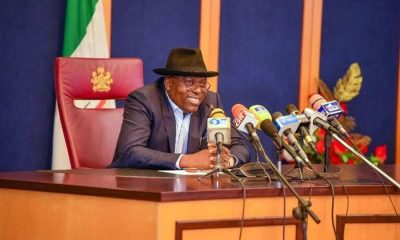
 metro2 days ago
metro2 days agoFubara reacts as Ex-HOS, Nwaeke accuses him of bombing oil pipelines, Rivers Assembly
-

 metro3 days ago
metro3 days agoWe welcome Gov Makinde’s U-turn on Shari’ah panel – MURIC
-

 Opinion2 days ago
Opinion2 days agoBarbaric mass burning of innocents in Edo, by Farooq Kperogi
-

 Uncategorized3 days ago
Uncategorized3 days agoObasanjo’s position on Rivers emergency rule hypocritical, says Presidency
-
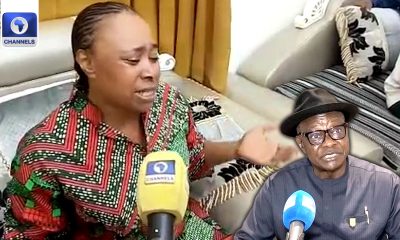
 metro2 days ago
metro2 days agoEx-Rivers HoS wife cries for help over husband’s safety







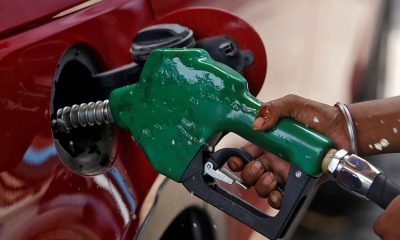

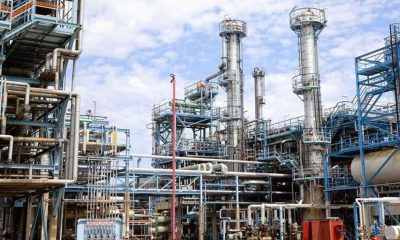


You must be logged in to post a comment Login